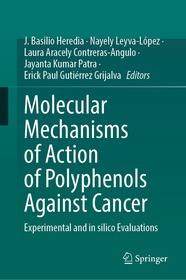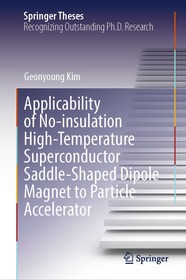
Molecular Mechanisms of Action of Polyphenols Against Cancer
Experimental and in silico Evaluations
- Publisher's listprice EUR 213.99
-
88 752 Ft (84 526 Ft + 5% VAT)
The price is estimated because at the time of ordering we do not know what conversion rates will apply to HUF / product currency when the book arrives. In case HUF is weaker, the price increases slightly, in case HUF is stronger, the price goes lower slightly.
- Discount 12% (cc. 10 650 Ft off)
- Discounted price 78 102 Ft (74 383 Ft + 5% VAT)
Subcribe now and take benefit of a favourable price.
Subscribe
88 752 Ft

Availability
Not yet published.
Why don't you give exact delivery time?
Delivery time is estimated on our previous experiences. We give estimations only, because we order from outside Hungary, and the delivery time mainly depends on how quickly the publisher supplies the book. Faster or slower deliveries both happen, but we do our best to supply as quickly as possible.
Product details:
- Publisher Springer Nature Switzerland
- Date of Publication 27 September 2025
- Number of Volumes 1 pieces, Book
- ISBN 9783031996009
- Binding Hardback
- No. of pages312 pages
- Size 235x155 mm
- Language English
- Illustrations XXVIII, 312 p. 47 illus., 38 illus. in color. Illustrations, black & white 699
Categories
Long description:
"
Recent and ongoing epidemiological studies point to the beneficial health effects of dietary polyphenols, with evidence suggesting that individuals with a high intake of polyphenol-rich foods have less incidence of noncommunicable diseases like diabetes, cardiovascular problems, and cancer. Multidisciplinary research on dietary polyphenols and what causes them to exert such benefits has led to discoveries which can help us to understand the mechanisms of action of these molecules, including the structure-activity relationships of polyphenols, the modulatory effects exerted on enzymes, reactive oxygen species, protein interactions, and the regulation of expression of some transcription factors.
In recent years, increased interest in bioinformatic studies has helped scientists predict and evaluate the interactions of polyphenols with protein targets involved in the onset and development of different types of cancer. Likewise, in silico evaluations coupled with experimental studies are a rising trend in many research areas. This contributed volume critically summarizes the experimental and in silico molecular mechanisms of action of dietary polyphenols, including phenolic acids, anthocyanins, flavanols, flavanones, and flavones against cancer. It is designed for researchers in academia and industry focused on cancer immunology and therapeutics, medicinal chemistry, and food science (functional foods, nutraceuticals, natural products, food technology), as well as graduate students preparing for a career in these areas.
" MoreTable of Contents:
"
Chapter 1. Phytochemicals as Potential Biopharmaceutical Agents.- Section I. In vitro, in vivo, and clinical evidence of the anticancer potential of polyphenols.- Chapter 2. Anticancer potential of phenolic acids.- Chapter 3. Anticancer potential of anthocyanins.- Chapter 4. Anticancer potential of flavanols.- Chapter 5. Anticancer potential of flavanones.- Chapter 6. Anticancer potential of flavones.- Chapter 7. Anticancer potential of flavonols.- Section II. In silico approach.- Chapter 8. In silico tools in the evaluation of the anticancer potential of phenolic acids.- Chapter 9. In silico evaluations of the anticancer potential of anthocyanins.- Chapter 10. In silico evaluations of the anticancer potential of flavanols.- Chapter 11. In silico evaluations of the anticancer potential of flavones.- Chapter 12. In silico evaluations of the anticancer potential of flavonols.- Chapter 13. Perspectives and Conclusions.
" More

Molecular Mechanisms of Action of Polyphenols Against Cancer: Experimental and in silico Evaluations








